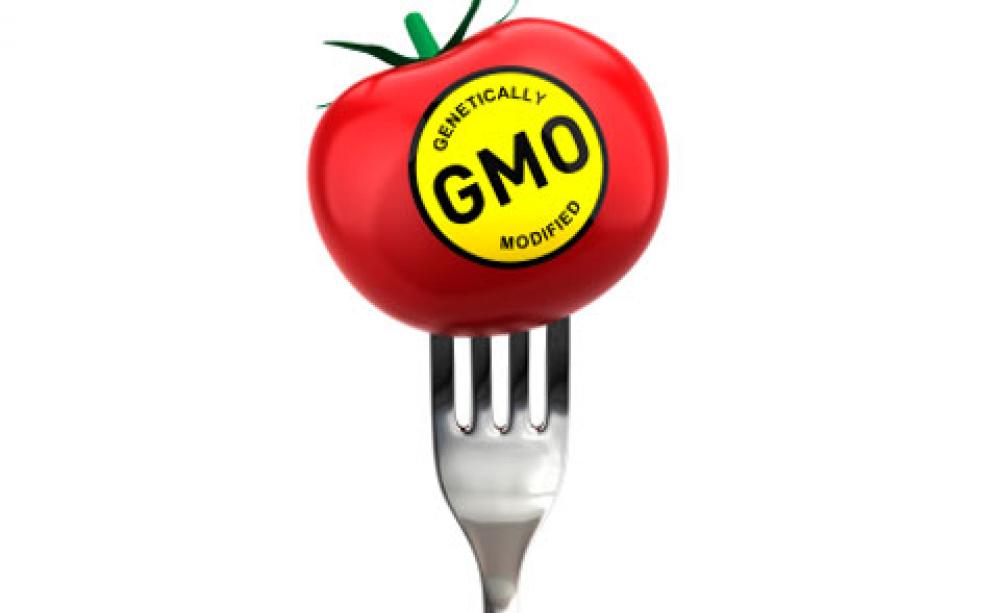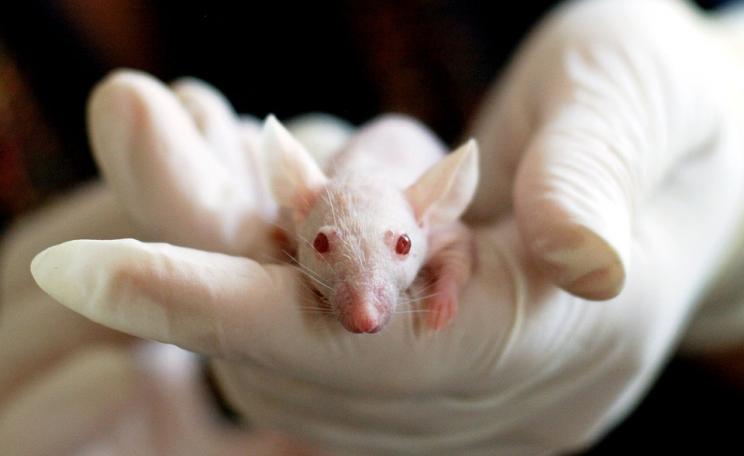Tom Levitt: Are the genetically-modified blight-resistant potato trials worth the cost to the UK?
Professor Jones: Yes, when you consider the cost of late blight is probably £60 million a year in the UK. It’s about £500 per hectare to control it, including labour, fuel and chemicals. Also that's not always completely successful so there’s always some losses anyway.
TL: What about concerns about GM traits surviving and spreading in the wild, contributing to rise of superweeds?
PJ: To the people opposed to this kind of herbicide-tolerance method of weed control, my question is, so what kind of weed control method would you recommend that’s not environmentally damaging and still works? It's all very well to criticise Roundup Ready and Monsanto - there are lots of good reasons for doing that - but you have to come up with some solution that works otherwise you lose very large amounts of yield to weeds. Idealism is OK for saying where you want to go but farmers have to be pragmatists. They have got to come up with the least bad solution for any of the problems they have got. My general view on RoundUp Ready is it's less bad than the weed-control methods that were used before it was introduced. But its's also a bit like antibiotics - if you just use one, resistance to it will develop and Roundup Ready weeds are certainly a problem now.
TL: What are your views on labelling or products - do consumers have the right to have the information to avoid GM if they want to?
PJ: I think long term, the rational approach is to assume that everything is "GM maybe", it's how everyone is living in the US, and if you really want to go GM free you go organic. But if I was advising BASF or another GM company, I would say you need to partner with a supermarket and come up with labelling that advertises in big letters that these potatoes are more environmentally-friendly with less chemical spraying [to protect against late blight] because of GM. It would probably only need to be for a couple of years but it would be respectful of people who want to avoid it.
TL: Is there an alternative to GM food out there?
PJ: If you look at organic, it’s currently 2 or 3 per cent of the acreage of crops and its not zooming up, its been flat for two or three years at least. An argument I made to demonstrators last weekend is that I understand they are people who are opposed - for perfectly understandable reasons - to the current industrial agriculture and they'd like to replace it with something that’s much more environmentally friendly etc. I’d love to see that happen too, provided yield is maintained. My strategy for reducing the environmental impact of agriculture is instead to take the existing varieties favoured by existing agriculture and reduce the impact by putting traits in so that they don’t need to be sprayed so often. We'll see in a few years which strategy has the most success.
TL: When will we see GM traits developed in Africa?
PJ: There is a lot of charitable money, for example the Bill Gates Foundation, that is supporting a water-efficient maize for Africa and important staples for poor people like virus-resistant Cassava and Sigatoka-resistant banana.
TL: Why are only a limited number of GM crops being grown worldwide?
PJ: It's the high cost of regulation. The cost of GM is actually not that high when you look at the benefits. It’s not that expensive to do the science, it’s the regulation that costs money. The technology is there but the cost of regulation is killing it dead here in Europe and the UK. For example, take Monsanto, which is a big tomato and maize seed company. If it's going to cost $30-$100 million to de-regulate any trait, then for maize it's probably going to be worth $500 million plus a year so it's probably worth it.
If you are de-regulating a trait for tomatoes where your annual seed sales are $50 million or less then it doesn't make any economic sense, so you don't do it, or it's a lower priority at least. The cost of regulation is stopping the spread of the technology beyond the most profitable seed crops. What I'd like to see is a partnership between public sector researchers and private companies and for us to make a deal, for example, with BASF [who are developing GM blight resistance for a Dutch variety of potatoes] and put the trait they are developing into Maris Piper, a more popular variety with farmers and supermarkets, for the British market.
TL: What difference has the public concern about GM food actually made to GM research in the UK?
PJ: Many researchers don’t want to get involved, they keep their heads down. It’s made it harder for them to link the science they do and the discoveries they make to crop improvement. It's made it all much harder for us to do something useful, as well as damaging recruiting. It's put people off agricultural science. The controversy has made people feel all this science on agronomy is a bad thing so they'll do something else.
TL: What should be the biggest research priorities for UK farming?
PJ: I’d say probably wheat rust resistance. But the reason why late blight is such an important target for GM is that if you can cure late blight susceptibility you can really reduce the amount of sprays. The problem with wheat, is if you come up with something that is completely rust resistant, you’re still going to be spraying the wheat for other diseases. With many of the crops there are a lot of diseases you need to deal with before you can stop spraying for fungal diseases.
TL: What proportion of crops would you expect to be GM in the future?
PJ: I would expect 90 per cent of worldwide maize, soyabean and cotton are going to be GM. I think it's already a high proportion of the rapeseed but that varies because it's grown in more environments, such as Europe which is non-GM at the moment. But really its not about whether it is or is not going to be GM but about how many traits are crops going to have. There are new methods for putting DNA into plant genomes at very precise positions - you could put 10 or 20 genes in that position and improve many different aspects of the plant all at once.
TL: How can we stop seed companies, like Monsanto, Bayer and Sygenta, monopolising the seed market?
PJ: If the cost of regulation was zero a lot more companies could do it. It's the cost of regulation that is promoting monopoly domination and excluding the small companies and the public sector from making the contribution they otherwise could. That's why I argue for a private/public partnership where the public sector develops some of these traits. When it comes to concerns about safety of GM crops, part of the objections of some people is that the safety package is prepared by the company. Solution: have the evaluation in the public sector.
TL: Why is research being directed to GM over say reducing food waste and improving post-harvest storage - both identified as bigger priorities in increasing food security?
PJ: Food waste and post-harvest storage are also very important. But I don't want to say one thing is more important than another. By analogy with solutions to climate change or energy supply, it's about wedges- there is no one thing to do which means you don’t have to worry about the other things. Saving food waste is a bit like reducing losses through better insulation in the energy sector. It’s part but not all of the solution. It's important to do it but I am a plant geneticist so I am not going to do it. Improved post-harvest storage is definitely important, especially in developing countries and simple investments can go a very long way to reducing losses to rats and so on. But it doesn't mean you should stop the genetics until you've figured out solutions to these problems. You have to take all these solutions forward in parallel. It's utopian to say there is one solution and anything else is a distraction.
Professor Jonathan Jones is senior scientist at The Sainsbury Laboratory, based at the John Innes Centre. He also co-founded Mendel Biotechnology which carries out contract research with Monsanto, Bayer and BP
| READ MORE... | |
 |
NEWS Revealed: how seed market is controlled by Monsanto, Syngenta, Bayer, Dow & DuPont Graphic illustrates how just five biotech giants have increased their control of the global seed market, promoting monoculture farming and making it harder for farmers to find alternative sources of seeds |
 |
INTERVIEW Exclusive interview Mark Lynas: 'More than half of greens agree with me on GM & nuclear' Mark Lynas, featured in Channel 4's recent and highly controversial documentary, 'What the green movement got wrong', tells Matilda Lee why he is not the pariah of the eco movement |
 |
NEWS Biotech industry plays down discovery of GM crops surviving in the wild GM seed manufacturers claim that genetically-modified crops are not likely to survive in wild, but US researchers have found GM plants surviving for at least two generations |
 |
COMMENT Revealed: the glyphosate research the GM soy lobby doesn't want you to read Andres Carrasco's research linking a controversial herbicide with birth defects highlighted the potential health dangers posed by GM crop-spraying in Argentina – and led to violence and intimidation for those behind the study |
 |
NEWS Call for publicly funded research into GM crops Technologies to increase agricultural productivity will allow the UK to help feed the world, says Royal Society report |








